Qawwam Man Initiative: For the Stability of the Muslim Family Institution
The Qawwam Man Initiative emphasises the role of men as leaders and wali (guardians) of their family members. In this role, the wali’s goal is to ensure the well-being of his family members, not only in this world, but also in the Hereafter.
The spirit of the initiative is taken from the word qawwam found in the Quranic verse “Ar-rijalu qawwamuna alan nisa” which is taken from Surah an-Nisa’, verse 34 which means “Men are the protectors and maintainers of women…” Literally, the qawwam man is one who protects and maintains the women in his family.
Nouman Ali Khan, the Founder of the Bayyinah Institute—an institute for Arabic and Qur’anic Studies—in explaning the concept of qawwam in his video on YouTube (https://www.youtube.com/watch?v=Gf0ho5YXeA4), said that qawwam means, “… to commit, to take care of, to maintain, to be serious and to be commited…”
According to him, in the context of the said verse 34, Surah an-Nisa’, qawwam suggests that, “… man (sic) continually express their care, their loyalty, their commitment, and they renew it over and over again.” In other words, the qawwam man is someone who maintains, takes care of, shows loyalty, shows love, and is actively involved over and over again towards the women of their households.
Such is the basis of the Qawwam Man Initiative that aims to make men understand the meaning of the word qawwam so that they can apply it while carrying out their role as husbands or fathers for the benefit of their families in this world and in the Hereafter.
A qawwam man will carry out his responsibilities as a husband and father well by providing quality food, clothing and shelter for his family. He will also ensure that his family is safe from all forms of harm be it physical, mental, social, emotional and spiritual. It is hoped that this initiative will lessen the problems of irresponsible, abusive and estranged husbands and fathers who are detrimental to the family institution.
To ensure the success of the initiative, the topic of “qawwam men” will be included in the Islamic Pre-Marriage course so that it can be explained to prospective grooms. Indeed, this is a good move. However, nurturing men to become qawwam needs to start earlier. The process needs to start when men were younger.
Boys need to be taught about big roles that they need to take seriously. As a son, he needs to know what his responsibilities are to his parents and other siblings, especially the female ones. This is an important aspect of the nurturing of boys that requires special emphasis and efforts.
In addition to loving and respecting his family members, including the female ones, he also needs to know his responsibility in taking care of their well-being and dignity. Boys need to know that being a man is not a privilege in Islam. It is a responsibility that needs to be carried out well.
In educating children, telling them what to do is one thing, but ensuring they do what they are told is another. When we tell our sons to respect their sisters, we need to observe that they really do so. In the boys’ interactions with their female siblings, make sure that “love”, “respect”, “caring” and “protecting” are present. If they are not, parents need to intervene to correct them.
In addition to nurturing children verbally and through observation, educating them through example is also important. Where does a son learn that it is the responsibility of a husband and a father to provide for his family? Indeed, we can tell them verbally or they can read about it from the text books. But the most effective way for them to learn about this is by seeing their fathers doing it—bringing food to the table and paying the bills.
Perhaps, fathers can take their boys along to buy groceries. When paying bills online, fathers can show their boys how it is done so that they get the idea that it is one of the things that fathers do to ensure that the electricity supply will not be cut off or the internet line will not be barred.
Some understand the phrase “Ar-rijalu qawwamuna alan nisa” as “Men are authorities over women.” For decades the phrase has been understood in such a way. However, according to Khan, qawwam does not mean authority. On the other hand, it means protectors and maintainers. Qawwam is not an advantage. It is a responsibility—a burden—that all men will be asked about later in the Hereafter.
The Qawwam Man Initiative is very important in ensuring the well-being of the Islamic family institution. Indeed, a stable Islamic family institution will strengthen the Keluarga Malaysia vision which has become our common goal.




